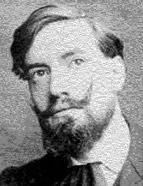

A social unit would have been built that ended up being political and prefiguring a detachable territory as national. Everything else stemmed from this prior attitude. Even when dealing with eighteenth-century expeditions, the Ilha-Brasil was as if floating westward, depending on the political advantages of the Portuguese. The Ilha-Brasil was evoked as a determining factor in the establishment of the borders, marking the limits and confrontations with the Spanish dominions.
He always felt "sick with saudade [longing]" for Portugal – within himself he could hear "the voice of his blood" because he was so far away - and as soon as he was allowed to, he returned to the Homeland in 1957. He resumed (as far as possible) his civic and political concerns, which still earned him a prison sentence at the age of seventy-four. Indeed, although he only had "literary ambitions as a writer and historian" (interview with Igrejas Caeiro, 1958, in José Ribeiro dos Santos, Jaime Cortesão..., p. 350) he would never bow down to dictatorships or dictators - and therefore had no place in the Academia Portuguesa da História [Portuguese Academy of History] (created by the regime for its service, in 1936 - with members appointed by the government).
Despite his availability, he was not the opposition candidate for President of the Republic in 1958, as General Humberto Delgado was chosen over him (for strategic reasons designed by Sérgio to undermine the regime from within). He actively continued to disseminate history and collaborate in newspapers on the subjects of his analyses, reviewing and recalling the Portuguese reality, its land and its people. Until the end, in August 1960. In addition to projects that never bore fruit (such as the long-desired and impending História de Portugal), two of his works were not completed: Os Descobrimentos Portugueses [Portuguese Discoveries] (published in Lisbon from 1960) and História do Brasil nos Velhos Mapas [History of Brazil in Old Maps] (in Rio de Janeiro, with vol. I in 1965 and II in 1971). Even without the author's finishing touch, they are indispensable as possible syntheses of two fields of research that occupied Cortesão over a long period of time, and where his original and powerful lesson has indelibly marked both the historiography of Portugal and of Brazil.
